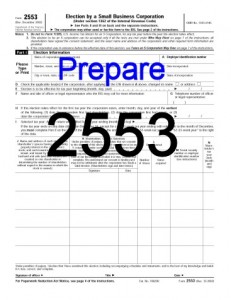 One of the big advantages of being a small business is that a small business is generally treated as a “tax flow through” entity. That means the entity itself pays no income tax, and all the business’ profits (or losses) are reported on the individual income tax returns of the business’ owners. This advantage is not available to large businesses, usually organized as C-corporations, which pay taxes at both the corporate level and then again at the individual owner level. In essence, the profits generated by large businesses are doubled taxed- taxed twice.
One of the big advantages of being a small business is that a small business is generally treated as a “tax flow through” entity. That means the entity itself pays no income tax, and all the business’ profits (or losses) are reported on the individual income tax returns of the business’ owners. This advantage is not available to large businesses, usually organized as C-corporations, which pay taxes at both the corporate level and then again at the individual owner level. In essence, the profits generated by large businesses are doubled taxed- taxed twice.
• individuals, other than nonresident aliens;
• an estate;
• an individual’s bankruptcy estate;
• a grantor trust;
• the administrative trust of a decedent (limited to two years after death;
• a testamentary trust (limited to two years after death);
• a voting trust);
• an electing small business trust);
• a qualified subchapter S trust (“QSST”);.
• certain exempt organizations;
• certain qualified retirement plans; and
• an S-corporation that owns a qualified subchapter S subsidiary (“QSSS”).